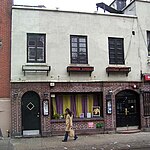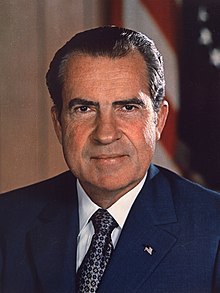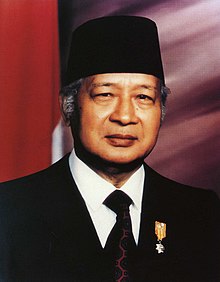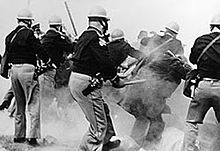The 1960s Portal
The 1960s became synonymous with the new, radical, and subversive events and trends of the period. In Africa the 1960s was a period of radical political change as 32 countries gained independence from their European colonial rulers. Some commentators have seen in this era a classical Jungian nightmare cycle, where a rigid culture, unable to contain the demands for greater individual freedom, broke free of the social constraints of the previous age through extreme deviation from the norm. Christopher Booker charts the rise, success, fall/nightmare and explosion in the London scene of the 1960s. However, this alone does not explain the mass nature of the phenomenon. Several nations such as the U.S., France, Germany and Britain turned to the left in the early and mid 1960s. In the United States, John F. Kennedy, a Keynesian and staunch anti-communist, pushed for social reforms. His assassination in 1963 was a stunning shock. Liberal reforms were finally passed under Lyndon B. Johnson including civil rights for African Americans and healthcare for the elderly and the poor. Despite his large-scale Great Society programs, Johnson was increasingly reviled by the New Left at home and abroad. The heavy-handed American role in the Vietnam War outraged student protestors across the globe, as they found peasant rebellion typified by Ho Chi Minh and Che Guevara more appealing. Italy formed its first left-of-center government in March 1962 with a coalition of Christian Democrats, Social Democrats, and moderate Republicans. Socialists joined the ruling block in December 1963. In Britain, the Labour Party gained power in 1964. In Brazil, João Goulart became president after Jânio Quadros resigned. This is a Featured article, which represents some of the best content on English Wikipedia..
The Coinage Act of 1965, Pub. L. 89–81, 79 Stat. 254, enacted July 23, 1965, eliminated silver from the circulating United States dime (ten-cent piece) and quarter dollar coins. It also reduced the silver content of the half dollar from 90 percent to 40 percent; silver in the half dollar was subsequently eliminated by a 1970 law. There had been coin shortages beginning in 1959, and the United States Bureau of the Mint expanded production to try to meet demand. The early 1960s was a time of increased use of silver both in the coinage and in industry, putting pressure on the price of silver, which was capped at just over $1.29 per ounce by government sales at that price. The silver in a dollar's worth of quarters would be worth more as bullion than as money if the price of the metal rose past $1.38 per ounce, and there was widespread hoarding of silver coins. Demand for the Kennedy half dollar as a collectable drove it from circulation after its debut in 1964. The Bureau of the Mint increased production, helping reduce the coin shortages by May 1965, but government stocks of silver were being rapidly reduced, and threatened to run out by 1968. After extensive study by the Treasury Department, President Lyndon B. Johnson in June 1965 recommended that Congress pass legislation to allow for silverless dimes and quarters, and debased silver half dollars. Although there was some opposition, mainly from legislators representing Western mining states, the bill progressed rapidly through Congress, and was enacted with Johnson's signature on July 23, 1965. (Full article...)This is a Good article, an article that meets a core set of high editorial standards.
Madhouse on Castle Street is a British television play, broadcast by BBC Television on the evening of 13 January 1963, as part of the Sunday Night Play strand. It was written by Evan Jones and directed by Philip Saville. The production featured the young American folk music singer Bob Dylan, who soon became a major musical star. The play was made with electronic video cameras, although recorded onto film rather than tape. The only known copy of the play was junked in 1968, as was the standard practice of the time, despite the fact that Dylan and lead actor David Warner were by then famous. Although extensive searches have been made by the BBC, only partial audio recordings of four songs sung by Dylan survive. (Full article...)Selected picture - Photo taken by a Lockheed U-2 spy plane of the San Cristobal MRBM launch site in Cuba, November 1962, after the Cuban Missile Crisis. Although this image was taken days after the crisis had ended (October 28), this image has become iconic of the crisis to the point where it is often cited incorrectly as having been taken during the crisis.
Did you know -
Related portalsThis is a Featured article, which represents some of the best content on English Wikipedia..
Richard Milhous Nixon (January 9, 1913 – April 22, 1994) was an American politician who served as the 37th president of the United States from 1969 to 1974. A member of the Republican Party, he previously served as a representative and senator from California and as the 36th vice president from 1953 to 1961 under President Dwight D. Eisenhower. His presidency saw the reduction of U.S. involvement in the Vietnam War, détente with the Soviet Union and China, the Apollo 11 Moon landing, and the establishment of the Environmental Protection Agency and Occupational Safety and Health Administration. Nixon's second term ended early when he became the only U.S. president to resign from office, as a result of the Watergate scandal. Nixon was born into a poor family of Quakers in Yorba Linda, Southern California. He graduated from Duke Law School in 1937, practiced law in California, and then moved with his wife Pat to Washington, D.C., in 1942 to work for the federal government. After serving active duty in the Naval Reserve during World War II, he was elected to the House of Representatives in 1946. His work on the Alger Hiss case established his reputation as a leading anti-communist, which elevated him to national prominence. In 1950, he was elected to the Senate. Nixon was the running mate of Eisenhower, the Republican Party's presidential nominee in the 1952 election, and served for eight years as vice president. He narrowly lost the 1960 presidential election to the Democratic Party nominee John F. Kennedy. After his loss in the 1962 race for governor of California, he announced his retirement from political life. However, in 1968, he made another run for the presidency and defeated the Democratic incumbent vice president Hubert Humphrey. (Full article...)This is a Good article, an article that meets a core set of high editorial standards.
Suharto (/suːˈhɑːrtoʊ/ soo-HAR-toh, Indonesian: [suˈharto] ; 8 June 1921 – 27 January 2008) was an Indonesian military officer and politician, who served as the second and the longest serving President of Indonesia. Widely regarded as a military dictator by international observers, Suharto led Indonesia as an authoritarian regime from 1967 until his resignation in 1998 following nationwide unrest. His 31-year dictatorship is considered one of the most brutal and corrupt of the 20th century, as he was central to the perpetration of mass killings against alleged communists, ethnic Chinese, irreligious people and trade unionists. Suharto was born in the small village of Kemusuk, in the Godean area near the city of Yogyakarta, during the Dutch colonial era. He grew up in humble circumstances. His Javanese Muslim parents divorced not long after his birth, and he lived with foster parents for much of his childhood. During the Japanese occupation era, Suharto served in the Japanese-organized Indonesian security forces. During Indonesia's independence struggle, he joined the newly formed Indonesian Army. There, Suharto rose to the rank of major general some time after full Indonesian independence was achieved. (Full article...)Selected article -The Selma to Montgomery marches were three protest marches, held in 1965, along the 54-mile (87 km) highway from Selma, Alabama, to the state capital of Montgomery. The marches were organized by nonviolent activists to demonstrate the desire of African-American citizens to exercise their constitutional right to vote, in defiance of segregationist repression; they were part of a broader voting rights movement underway in Selma and throughout the American South. By highlighting racial injustice, they contributed to passage that year of the Voting Rights Act, a landmark federal achievement of the civil rights movement. Since the late 19th century, Southern state legislatures had passed and maintained a series of Jim Crow laws that had disenfranchised the millions of African Americans across the South and enforced racial segregation. The initial voter registration drive, started in 1963 by the African-American Dallas County Voters League (DCVL) and the Student Nonviolent Coordinating Committee (SNCC) failed as local White officials arrested the organizers and otherwise harassed Blacks wishing to register to vote. The passage of the Civil Rights Act of 1964 legally ended segregation but the situation in Selma changed little. The DCVL then invited Rev. Martin Luther King Jr. and the activists of the Southern Christian Leadership Conference (SCLC) to amplify the efforts, and these figures drew more prominent people to Alabama. Local and regional protests began in January 1965, with 3,000 people arrested by the end of February. On February 26, activist and deacon Jimmie Lee Jackson died after being shot several days earlier by state trooper James Bonard Fowler during a peaceful march in nearby Marion. To defuse and refocus the Black community's outrage, James Bevel, who was directing SCLC's Selma voting rights movement, called for a march of dramatic length, from Selma to the state capital of Montgomery, calling for an unhindered exercise of the right to vote.[page needed] (Full article...)More Did you know (auto generated)
TopicsCategoriesWikiProjects
Associated WikimediaThe following Wikimedia Foundation sister projects provide more on this subject:
Discover Wikipedia using portals |
© MMXXIII Rich X Search. We shall prevail. All rights reserved. Rich X Search





























